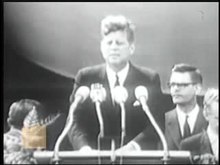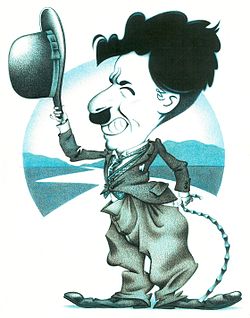ARE YOU A BERLINER (DONUT)? How To Read German, Understand and Tell Jokes In And About German Language and German People

Did JFK say Ich bin Ein Berliner, referring to himself as a donut.

This is a Berliner. Pic from wiki article on the speech.
How is your German?
I just tried to credit a photographer with a German name for his photo. I linked back to his page but got a German message. It was clearly saying this page no longer exists. I looked at the words and tried to decipher them. At school I learned French and Latin and have never learned German although I completed the Duolingo German first course on my laptop and mobile phone. The course is free.
Today I could easily recognize these words:
German - English
Du - you (Like tu in French. If it helps, think f the phrase Do you? Du is German for you.)
existiert - exist
und - and
wenn - when
I used Google translate but you are likely to end up with unintended humour.
You probably know this joke about English being converted to German in the EU.
English to become official language of the EU
The European Commission has just announced an agreement whereby English will be the official language of the European Union rather than German, which was the other possibility.
As part of the negotiations, the British Government conceded that English spelling had some room for improvement and has accepted a 5- year phase-in plan that would become known as "Euro-English".
In the first year, "s" will replace the soft "c". Sertainly, this will make the sivil servants jump with joy. The hard "c" will be dropped in favour of "k". This should klear up konfusion, and keyboards kan have one less letter.
There will be growing publik enthusiasm in the sekond year when the troublesome "ph" will be replaced with "f". This will make words like fotograf 20% shorter.
In the 3rd year, publik akseptanse of the new spelling kan be expekted to reach the stage where more komplikated changes are possible.
Governments will enkourage the removal of double letters which have always ben a deterent to akurate speling.
Also, al wil agre that the horibl mes of the silent "e" in the languag is disgrasful and it should go away.
By the 4th yer peopl wil be reseptiv to steps such as replasing "th" with "z" and "w" with "v".
During ze fifz yer, ze unesesary "o" kan be dropd from vords kontaining "ou" and after ziz fifz yer, ve vil hav a reil sensi bl riten styl.
Zer vil be no mor trubl or difikultis and evrivun vil find it ezi TU understand ech oza. Ze drem of a united urop vil finali kum tru.
Und efter ze fifz yer, ve vil al be speking German like zey vunted in ze forst plas.
I bought this on a tee-towel.
Something similar comes well before the EU from Mark Twain. (I mistyped his name as Mark Twin!)
"A plan for the improvement of English spelling" --Mark Twain
For example, in Year 1 that useless letter "c" would be dropped to be replased either by "k" or "s", and likewise "x" would no longer be part of the alphabet. The only kase in which "c" would be retained would be the "ch" formation, which will be dealt with later. Year 2 might reform "w" spelling, so that "which" and "one" would take the same konsonant, wile Year 3 might well abolish "y" replasing it with "i" and Iear 4 might fiks the "g/j" anomali wonse and for all.
Jenerally, then, the improvement would kontinue iear bai iear with Iear 5 doing awai with useless double konsonants, and Iears 6-12 or so modifaiing vowlz and the rimeining voist and unvoist konsonants. Bai Iear 15 or sou, it wud fainali bi posibl tu meik ius ov thi ridandant letez "c", "y" and "x" -- bai now jast a memori in the maindz ov ould doderez -- tu riplais "ch", "sh", and "th" rispektivli.
Fainali, xen, aafte sam 20 iers ov orxogrefkl riform, wi wud hev a lojikl, kohirnt speling in ius xrewawt
By the 4th yer people
Wikipedia has a section on German language and another on German language and jokes.
I recognized this joke which has similar English versions:
- Jokes about other nationalities: Germans have their own set of stereotypes about other nations, which includes German regionalities. For example, Scotsmen are portrayed as miserly, Swiss as physically slow, French as sophisticated lovers, Poles as notorious thieves, Dutch as slow/bad drivers on motorways (typically with a caravan attached to their car), and Chinese as employing caricatures of Confucian wisdom. An Austrian is usually merely an antagonist of a German character and may be presented as superior, inferior, or an unacknowledged equal.
- Example: The United Nations initiated a poll with the request, "Please tell us your honest opinion about the lack of food in the rest of the world." The poll was a total failure. The Russians did not understand "Please". The Italians did not know the word "honest". The Chinese did not know what an "opinion" was. The Europeans did not know "lack", while the Africans did not know "food". Finally, the Americans didn't know anything about the "rest of the world".
In German nouns are always written with a capital letter, so there are also jokes about this.
Examples:
Der Gefangene floh – The prisoner escaped
Der gefangene Floh – The captured flea
Die Spinnen! – The Spiders
Die spinnen! – They're crazy
Er hatte liebe Genossen - He had dear comrades
Er hatte Liebe genossen - He had enjoyed love
In the GDR there were lots of jokes on the word play with Genossen / genossen
Non-German speakers may find it hard to understand German humour, simply due to the language barrier. Some jokes, puns and humorous turns of phrase are lost in translation.
Hansgeorg Stengel, a German Kabarettist and writer, said: "Germans are unable to speak the German language". Commonly or apparently incorrect usage of German grammar is another form of humour ironically called Stilblüten (bloomers). The Bavarian politician Edmund Stoiber once said, Wir müssen den Kindern richtiges Deutsch lernen (literally "We must learn the children correct German", itself an error in the use of language, using lernen, "learn" instead of lehren, "teach"). Stoiber said this publicly at the Bavarian cultural event Politischer Aschermittwoch, the "Political Ash Wednesday".
Types of humor[edit]
Schadenfreude[edit]
The word Schadenfreude can be translated as glee or spitefulness, but most often it doesn't serve a malicious purpose. A more fitting translation is "the fun of seeing others struggling". Often the protagonist of such jokes is thrown into a dilemma, where he or she has to ignore the German sense of suavity in order to get out of a specific situation.
In one sketch the well-known comedian Loriot, the protagonist tries to get rid of a banana skin.[6] The whole scene works without any spoken words or dialogue
Literature and television[edit]
The oldest popular forms of German comedy were the Posse and the Schwank which could take the forms of stories, plays or improvisations. The German comedic play (Lustspiel) was refined and updated by playwright and critic Gotthold Ephraim Lessing who, in Briefe, die neueste Literatur betreffend (1759) described the early 18th century comedies as relying heavily on dressed-up characters, magic tricks and fights. His comedy Minna von Barnhelm (1767) and Heinrich von Kleist's The Broken Jug (1811) joined especially various translations and adaptations of plays by early Greeks, Racine, Shakespeare, Molière, Calderon and others to form the basis of later developments.
The German Classical and Romantic periods saw a lot of humorous polemical, parodistic and satirical exchange between writers such as Goethe, Schiller, Ludwig Tieck, the Schlegel brothers, as well as many critics and philosophers both in the literary journals and in their own publications. Probably the most renowned ironic texts and poems in that era were written by Heinrich Heine, who developed a very distinct tongue-in-cheek style of writing, embracing Romantic ideals while mocking at the same time, often even within one poem. Up until today Heine remains to be titled one of the most insightful and witty among German writers.
One of the most important figures in the beginning of filmed comedy in Germany was stage comedian Karl Valentin who produced short films from 1912 to 1941.
Traditional joke themes and forms[edit]
- Jokes about other nationalities: Germans have their own set of stereotypes about other nations, which includes German regionalities. For example, Scotsmen are portrayed as miserly, Swiss as physically slow, French as sophisticated lovers, Poles as notorious thieves, Dutch as slow/bad drivers on motorways (typically with a caravan attached to their car), and Chinese as employing caricatures of Confucian wisdom. An Austrian is usually merely an antagonist of a German character and may be presented as superior, inferior, or an unacknowledged equal.
- Example: The United Nations initiated a poll with the request, "Please tell us your honest opinion about the lack of food in the rest of the world." The poll was a total failure. The Russians did not understand "Please". The Italians did not know the word "honest". The Chinese did not know what an "opinion" was. The Europeans did not know "lack", while the Africans did not know "food". Finally, the Americans didn't know anything about the "rest of the world".
- In some respects, the jokes try to be fair, for instance: Which nationality was Ötzi the Iceman? He wasn't Italian, as he carried tools; he wasn't Austrian, since he had brains; he might have been Swiss, since he was overtaken by a glacier, but most probably he was a North German, because nobody else walks in sandals in the mountains.
- East Frisians (Ostfriesen) (East Frisians are a people living in East Frisia, the north-western corner of Germany): This national minority is portrayed as absurdly stupid or naive. Jokes are often in the form of question and answer, both given by the joke-teller.
- Example: How many Frisians does it take to screw in a light bulb? Five! One to hold the bulb and four to turn the table he's standing on.
- Example: What would you do in the event of the Great Flood? Go to East Frisia, because there everything happens fifty years later.
- Beamte: German state officials (Beamte). Within jokes, they are considered slow and lazy, doing a nearly useless job in the bureaucracy.
- Example: Three in a room and one is working, what's that? – Two officials and a fan.
- Example: Three boys argue about whose father is the fastest. The first one says: "My father is a racing driver, he is the fastest." The second one contradicts him: "No, my father is a Luftwaffe pilot, surely the fastest one." "That's nothing", says the third one. "My father is a Beamter, he is so fast that when work ends at 5 pm, he's already home at 1 pm."
- Example: Visitor: "You have many flies in this office." - Beamter: "Yes, 247."
- Mantawitz (Manta joke): The male counterpart to the blonde is the Mantafahrer, the male driver of an Opel Manta, who is dull, lower class, macho, infatuated with his car and his blonde hairdresser girlfriend, and often exceedingly proud and possessive about things that most people would consider embarrassing. Popular in the 1990s, also the popularity of such jokes spawned two successful movies (Manta – Der Film and Manta, Manta, the latter starring Til Schweiger as the Mantafahrer).
- Example: What does a Manta driver say to a tree after a crash? – "Why didn't you get out of my way, I used the horn!"
- Antiwitz (anti-joke): A short, often absurd scene, which has the recognizable structure of a joke, but is illogical or lacking a punch-line.
- Example: Two thick feet are crossing the street. Says one thick foot to the other thick foot: "Hello!"
- Other examples: "Nachts ist es kälter als draußen" (At night it's colder than outside) or "Zu Fuß ist es kürzer als über'n Berg" ("Walking is faster than over the mountain") or "Zwei Männer gehen über eine Brücke. Der eine fällt ins Wasser, der andere heißt Helmut." ("Two men walk over a bridge. One falls into the water, the other is called Helmut.").
- Kalauer (literally translated as "pun"): Short, often deliberately clumsy puns and plays on words. Usually delivered in a Q&A scheme, e.g. "Which Peter makes the most noise? The Trum-Peter."
- Examples: See "Kalauer" in the German-language Wikipedia
- Bauernregeln-Witze (Farmers' lore jokes): Told in the traditional rhyme scheme of weather lore. There are two variants: one is really about weather, but the rule is absurd or tautologous; the other can be about any other topic, makes some sense, often has sexual connotations, and may feature word play or some real, hidden or twisted wisdom.
- Wenn noch im November steht das Korn, dann isses wohl vergesse worn (If the corn still stands in November, then there is something the farmer didn't remember).
- Liegt der Bauer tot im Zimmer, lebt er nimmer (If a farmer lies dead in a room, he lives no more).
- Wenn der Bauer zum Waldrand hetzt, war das Plumpsklo schon besetzt. - "If a farmer rushes to the woods, the outhouse is occupied."
- In fact, while many real Bauernregeln sound funny, they carry the grain of truth, so sometimes it is hard to tell, whether it is a parody or an ancient wisdom:[7]
- Ists an Silvester hell und klar, dann ist am nächsten Tag Neujahr (If Sylvester is light and clear, the next day'll surely be New Year).
- Hört Waltraud nicht den Kuckuck schrein, dann muss er wohl erfroren sein ("If by Waltrude the cuckoo is not heard, it is probably frozen and dead.")
- April 19 is the feast day of Saint Waltrude, this wit alludes to the possibility of a snapback of cold in April[7]
Useful Websites
https://en.wikipedia.org/wiki/Ich_bin_ein_Berliner
https://en.wikipedia.org/wiki/German_humour
Fawlty Towers On TV - episode on The Germans
https://en.wikipedia.org/wiki/The_Germans
Angela Lansbury
Aspiring polyglot. I have reached level 5 in the Toastmasters International Pathway Engaging Humor. Please share links to your favourite posts.

.jpg)


Comments
Post a Comment